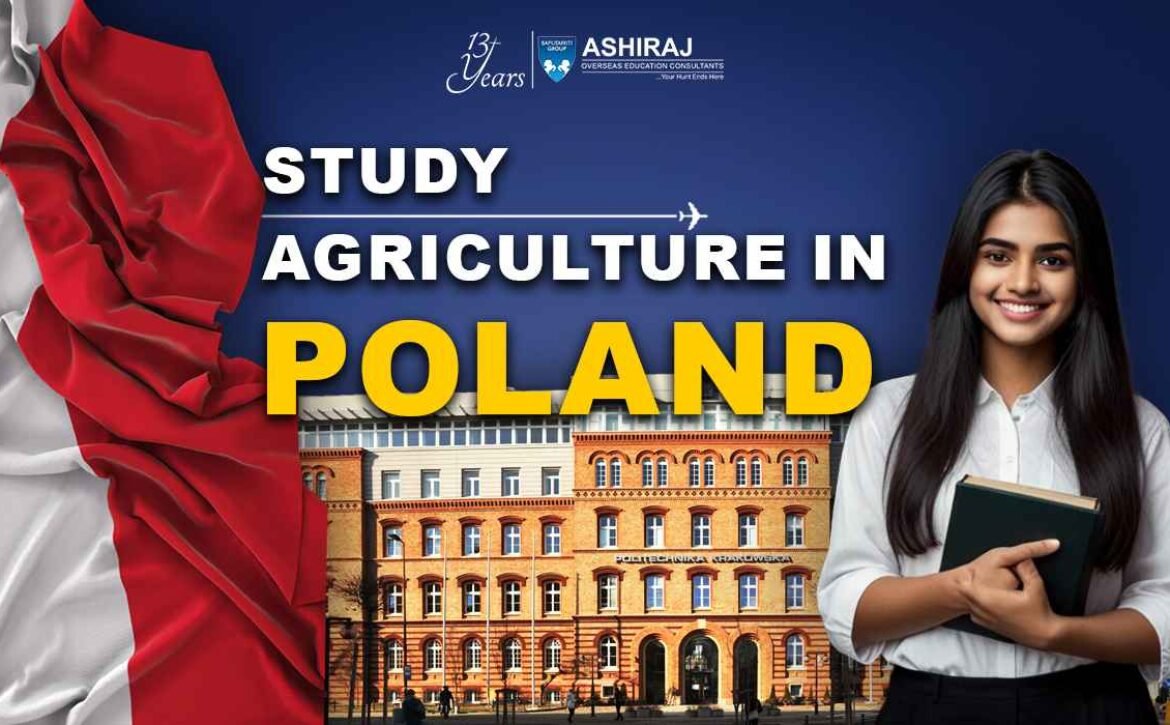
Agriculture in Poland
Agriculture in Poland boasts a rich heritage deeply intertwined with the nation’s cultural and economic identity. Spanning vast tracts of fertile land, Poland’s agricultural sector is a cornerstone of its economy, employing a significant portion of the population and contributing substantially to its GDP. With a diverse landscape ranging from the fertile plains of the central lowlands to the picturesque hills of the south, Poland offers an ideal environment for varied agricultural activities, from crop cultivation to livestock farming.
The agricultural landscape in Poland is characterized by modern practices alongside traditional methods, reflecting a balance between innovation and heritage. As a key player in the European Union’s agricultural sector, Poland’s farms benefit from subsidies and access to a wide market. However, challenges such as land fragmentation and rural depopulation persist, necessitating strategic interventions to ensure the sustainable growth of the sector. Amidst these challenges, Poland’s agriculture remains resilient, poised to adapt to evolving market demands while preserving its rich agricultural legacy.
Why to Study Agriculture in Poland?
- Rich Agricultural Heritage: Poland has a long history of agricultural excellence, offering a wealth of knowledge and expertise to students.
- Diverse Agricultural Landscape: From expansive plains to rolling hills, Poland’s diverse geography provides a hands-on learning experience in various agricultural practices.
- Modern Agricultural Techniques: With a blend of traditional wisdom and modern innovations, studying agriculture in Poland exposes students to cutting-edge techniques and technologies.
- European Union Membership: As a member of the European Union, Poland’s agriculture sector benefits from EU subsidies and access to a large market, providing ample opportunities for research and development.
- Affordable Education: Compared to many Western European countries, Poland offers affordable tuition fees and living costs, making it an attractive destination for international students.
- Practical Learning Opportunities: Students studying agriculture in Poland have access to internships and practical training on farms, enhancing their hands-on skills and industry experience.
- Cultural Experience: Beyond academics, studying agriculture in Poland offers a chance to immerse oneself in Polish culture and traditions, enriching the overall learning experience.
- Global Networking: Poland’s strategic location in Europe facilitates networking opportunities with professionals and organizations from across the continent, opening doors to global career prospects in agriculture.
Top Universities to Study Agriculture in Poland
University | QS World University Ranking 2023 | Type of University | Average Annual Fees | Programs Offered |
University of Warsaw | 250 | Public | $2,000 – $4,000 | Agricultural Economics |
Agribusiness Management | ||||
Environmental Science | ||||
Warsaw University of Life Sciences – SGGW | 350 | Public | $1,500 – $3,000 | Agronomy |
Animal Science | ||||
Food Technology | ||||
Jagiellonian University | 400 | Public | $2,500 – $4,500 | Sustainable Agriculture |
Rural Development | ||||
Agricultural Policy | ||||
Adam Mickiewicz University | 450 | Public | $2,000 – $3,500 | Crop Science |
Soil Science | ||||
Horticulture | ||||
Wrocław University of Environmental and Life Sciences | 500 | Public | $1,500 – $3,000 | Forestry |
Land Reclamation | ||||
Ecotourism |
Studying agriculture in Poland offers a diverse range of educational opportunities, with top universities providing specialized programs tailored to meet industry demands. These universities are renowned for their academic excellence and practical training, preparing students for successful careers in the agricultural sector. With affordable tuition fees and access to modern facilities, pursuing agriculture studies in Poland ensures a high-quality education without breaking the bank.
Course Curriculum for Agriculture in Poland
- Foundational Subjects: The curriculum typically begins with core courses covering basic principles of agriculture, including soil science, plant biology, and animal husbandry, providing students with a solid foundation in agricultural sciences.
- Specialized Tracks: Students have the option to choose from various specialized tracks such as agronomy, horticulture, animal science, and agricultural economics, allowing them to focus on their areas of interest and expertise.
- Practical Training: Hands-on training is an integral part of the curriculum, with opportunities for fieldwork, laboratory experiments, and internships on farms or agricultural enterprises, enabling students to apply theoretical knowledge in real-world settings.
- Research Projects: Students engage in research projects under the guidance of faculty members, fostering critical thinking, problem-solving skills, and innovation in addressing contemporary challenges in agriculture.
- Interdisciplinary Approach: The curriculum often adopts an interdisciplinary approach, integrating subjects like environmental science, economics, and business management to provide students with a holistic understanding of agriculture and its broader impact.
- Industry Relevance: Coursework is designed to align with industry trends and demands, ensuring that graduates are well-equipped with the latest skills and knowledge to excel in the dynamic field of agriculture in Poland.
- Global Perspective: With a focus on global agricultural issues and practices, the curriculum prepares students to work in diverse cultural and geographical contexts, facilitating international collaboration and career opportunities in agriculture.
Eligibility Criteria & Admission Requirements for MS in Agriculture in Poland
- Language Proficiency: Applicants must demonstrate proficiency in English by providing either IELTS or TOEFL scores. The minimum required scores for IELTS are typically 6.5 overall with no band less than 6.0, and for TOEFL, around 80-90.
- Standardized Tests: Some universities may require applicants to submit GRE or GMAT scores as part of the admission process. The minimum scores vary depending on the university and program but generally range between 300-320 for GRE and 600-700 for GMAT.
- Educational Background: Applicants should hold a bachelor’s degree in agriculture or a related field from a recognized institution. Transcripts or academic certificates demonstrating satisfactory academic performance are typically required.
- Passport & Student Visa: International students must possess a valid passport and obtain a student visa to study in Poland. The visa application process may require proof of acceptance from a Polish university, financial means, and other supporting documents.
- Work Experience: While not always mandatory, some programs may prefer applicants with relevant work experience in the field of agriculture. Work experience can strengthen an applicant’s profile and demonstrate practical knowledge and skills.
Test | Minimum Score |
IELTS | 6.5 Overall, no band less than 6.0 |
TOEFL | 80-90 |
GRE | 300-320 |
GMAT | 600-700 |
Meeting these eligibility criteria ensures that prospective students are well-prepared to excel in their agricultural studies in Poland, contributing to the advancement of the field both locally and globally.
Documents Required for Studying Agriculture in Poland
- Passport: A valid passport is essential for international students applying to study agriculture in Poland. Ensure that your passport has sufficient validity to cover the duration of your study program.
- Letters of Recommendation (LOR): Typically, two letters of recommendation from academic or professional sources are required. These letters should attest to your academic abilities, character, and suitability for the program.
- Statement of Purpose (SOP): The SOP provides insight into your academic and career goals, as well as your reasons for choosing to study agriculture in Poland. It should be well-written and tailored to the specific program and university.
- Curriculum Vitae (CV): A comprehensive CV outlining your educational background, work experience, extracurricular activities, and any relevant achievements is necessary for the application process.
- Official High School Transcripts and Certificates: Transcripts and certificates from your high school or secondary education institution are required to demonstrate your academic qualifications.
- Work Experience Certificate: If applicable, a work experience certificate detailing your relevant professional experience in the field of agriculture should be submitted.
- Proof of Financial Resources: To obtain a student visa, you must provide proof of sufficient financial resources to cover tuition fees, living expenses, and other related costs for the duration of your studies in Poland.
Ensuring that all these documents are in order and submitted as per the university’s requirements is crucial for a successful application to study agriculture in Poland.
Admission Process for Agriculture in Poland
- Research Universities: Begin by researching universities in Poland offering agricultural programs. Consider factors such as program reputation, faculty expertise, and facilities.
- Check Eligibility: Review the admission requirements for your chosen programs, including academic qualifications, language proficiency tests (IELTS/TOEFL), and standardized test scores (GRE/GMAT).
- Prepare Documents: Gather required documents such as transcripts, letters of recommendation, statement of purpose, curriculum vitae, and proof of financial resources.
- Submit Application: Complete the online application form for your selected universities. Ensure all required documents are uploaded accurately and within the specified deadlines.
- Pay Application Fee: Pay the application fee, if applicable, as per the university’s instructions.
- Wait for Response: Await the admission decision from the university. This may take several weeks, so be patient during the review process.
- Receive Offer Letter: If accepted, you will receive an offer letter from the university outlining the conditions of admission and any further steps required.
- Accept Offer: Upon receiving the offer letter, follow the instructions to formally accept the offer and secure your place in the program.
- Apply for Visa: International students must apply for a student visa to study in Poland. Prepare and submit the necessary documents to the Polish embassy or consulate in your country.
- Arrive in Poland: Once your visa is approved, make necessary arrangements for travel and accommodation, and prepare for the start of your agricultural studies in Poland.
Following these steps diligently ensures a smooth admission process for studying agriculture in Poland.
“Education is the most powerful weapon which you can use to change the world.”
Nelson Mandela
Cost of Agriculture Course in Poland
- Tuition Fees: Tuition fees for agriculture programs in Poland range from approximately $2,000 to $4,000 per year for international students, varying based on the university and program.
- Living Expenses: The cost of living in Poland is relatively affordable compared to other European countries, with expenses for accommodation, food, transportation, and miscellaneous items totalling around $500 to $800 per month.
- Additional Costs: Additional expenses may include textbooks, health insurance, visa fees, and leisure activities, which can amount to approximately $1,000 to $2,000 per year.
- Scholarship Opportunities: Various scholarships and financial aid options are available for international students studying agriculture in Poland, helping to offset tuition and living costs.
- Part-time Work: International students are permitted to work part-time during their studies in Poland, providing opportunities to earn extra income to cover expenses.
- Budget Planning: Careful budget planning and financial management are essential for students to ensure they can comfortably afford the cost of studying agriculture in Poland without financial strain.
Overall, studying agriculture in Poland offers a cost-effective option with quality education and abundant opportunities for international students.
Scholarships for Agriculture Courses in Poland
Scholarship Name | Amount | Application Deadline |
Ignacy Łukasiewicz Scholarship | Up to $5,000 per year | 15th April |
Stanisław Staszic Scholarship | Up to $3,500 per year | 30th May |
Nicolaus Copernicus Scholarship | Up to $4,000 per year | 20th June |
Marie Curie Scholarship | Up to $6,000 per year | 10th July |
Janusz Korczak Scholarship | Up to $4,500 per year | 25th August |
Scholarships play a crucial role in supporting international students pursuing agriculture studies in Poland. These scholarships, with varying amounts and application deadlines, provide financial assistance to deserving students, making education more accessible and affordable. It’s essential for prospective students to carefully review the eligibility criteria and application requirements for each scholarship opportunity to maximize their chances of securing funding for their agricultural studies in Poland.
Career Opportunities After Agriculture in Poland
Job Profile | Average Salary (PLN) |
Agricultural Engineer | 5,000 – 8,000 |
PLN per month | |
Agricultural Economist | 6,000 – 10,000 |
PLN per month | |
Agronomist | 4,500 – 7,500 |
PLN per month | |
Food Technologist | 5,500 – 9,000 |
PLN per month | |
Livestock Manager | 4,000 – 7,000 |
PLN per month |
After completing agricultural studies in Poland, graduates have access to diverse career opportunities in various sectors. Agricultural engineers are in demand for designing and implementing farming machinery and systems, with an average salary ranging from 5,000 to 8,000 PLN per month. Agricultural economists analyze agricultural trends and policies, earning between 6,000 to 10,000 PLN monthly. Agronomists focus on crop production and soil management, with salaries ranging from 4,500 to 7,500 PLN per month. Food technologists work in food processing and quality control, earning between 5,500 to 9,000 PLN monthly. Livestock managers oversee animal production, with average salaries of 4,000 to 7,000 PLN per month. These career paths offer rewarding opportunities for graduates in the field of agriculture in Poland.
Frequently Asked Questions About Agriculture in Poland
Studying agriculture in Poland is an excellent choice due to its rich agricultural heritage, modern techniques, and diverse landscape, offering hands-on learning experiences. Additionally, Poland’s membership in the European Union provides access to subsidies and a large market for agricultural products.
Eligibility criteria typically include a bachelor’s degree in agriculture or a related field, language proficiency tests (IELTS/TOEFL), standardized test scores (GRE/GMAT), and submission of relevant documents such as transcripts, letters of recommendation, and statement of purpose.
Yes, there are various scholarships available for international students studying agriculture in Poland, such as the Ignacy Łukasiewicz Scholarship, Stanisław Staszic Scholarship, Nicolaus Copernicus Scholarship, Marie Curie Scholarship, and Janusz Korczak Scholarship.
The cost of studying agriculture in Poland includes tuition fees, living expenses, and additional costs such as textbooks and health insurance. Tuition fees range from approximately $2,000 to $4,000 per year for international students.
Job prospects after completing agriculture studies in Poland include roles such as agricultural engineer, agricultural economist, agronomist, food technologist, and livestock manager, with average salaries ranging from 4,000 to 10,000 PLN per month.
International students can apply for a student visa to study agriculture in Poland by submitting necessary documents such as acceptance letter from a Polish university, proof of financial resources, and valid passport to the Polish embassy or consulate in their country.
Yes, many universities in Poland offer internship opportunities for agriculture students on farms or agricultural enterprises, providing valuable hands-on experience and practical training in the field.
The language of instruction for agriculture programs in Poland is primarily Polish. However, some universities offer programs taught in English, especially at the master’s level, to cater to international students.
Yes, international students are permitted to work part-time while studying agriculture in Poland. This provides opportunities to earn extra income to cover living expenses and gain work experience in the field.
Some of the top universities in Poland for studying agriculture include the University of Warsaw, Warsaw University of Life Sciences – SGGW, Jagiellonian University, Adam Mickiewicz University, and Wrocław University of Environmental and Life Sciences.




